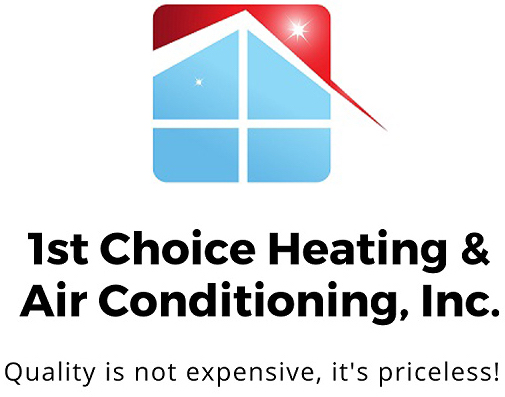
To combat increasing energy expenses and embrace sustainability, many homeowners are trying new methods to maintain comfort levels while using less energy. With help from the Inflation Reduction Act, federal tax credits are available for high efficiency HVAC equipment. These credits offer a big chunk of the installation costs, as long as the homeowners select eligible equipment and submit the appropriate form.
If you’re trying to avoid a long process, maybe we can help! 1st Choice Heating & Air Conditioning hopes this guide will give you what you need to secure 2024’s HVAC tax credits. Here’s how to make it happen.
Understanding the HVAC Tax Credits
These valuable tax credits for energy-efficient home improvements are just one portion of the recent Inflation Reduction Act. With the higher cost of energy making an impact, helping more homeowners upgrade their equipment is always beneficial. The primary goal of these credits is to mitigate costs associated with installation and renovation projects. The two we’ll cover are the Energy Efficiency Home Improvement Credit and the Residential Clean Energy Credit.
Don’t forget, to claim your credits, you’ll need a completed IRS Form 5695. Additionally, this form has to be submitted for the same tax year any upgrades were installed, not bought.
Maximizing Savings with the Energy Efficiency Home Improvement Credit
Through 2032, the Energy Efficiency Home Improvement Credit provides up to $3,200 each year for making your home more energy-efficient. This amounts to 30% of the total project’s cost. It's important to note in order to receive the maximum amount, it means making severel investments. For example, you’ll save up to $2,000 for a new, high-efficiency heat pump. This can be combined with the remaining $1,200 in credits for other eligible upgrades made within the tax year.
While new heat pump systems are a key target for this incentive, high-efficiency furnaces, air conditioners, boilers, and other HVAC systems are still eligible for this tax credit. It will help to confirm the make and model’s energy efficiency rating is high enough for eligibility.
Exploring the Residential Clean Energy Credit
The Residential Clean Energy Credit offers 30% savings on a number of other residential clean energy equipment upgrades. Eligibility is only extended to homeowners seeking to update existing or newly constructed homes. While the Home Improvement Credit highlights utilities and HVAC systems, this credit is more about renewable energy sources like solar and wind energy.
Some specific items in this tax credit include the requirement that installation must occur between 2022 and 2032. But at the same time, homeowners can carry forward excess credit to offset future tax obligations. This is a great way to soften the entry into investing in clean energy.
Additional Qualifications for Energy Tax Credits
Because HVAC systems are one of the major reasons for high energy bills, these tax credits can guide you to the most energy-efficient options. But home energy efficiency can be improved in many other ways. Apart from the previously listed HVAC upgrades, {you could also choose|other eligible items include|you also have access to:
- Energy-saving heat pump water heating systems
- Modern electrical panel improvements
- New electrical wiring
- Insulation, air sealing and ventilation enhancements
- Energy-efficient cooking appliances like stoves, cooktops, and ovens
- Efficient heat pump clothes drying solutions
- High-efficiency water boilers
Like the HVAC systems, you’ll need to verify that your chosen products meet the eligible energy efficiency ratings.
Three Tips for Making the Most of 2024 HVAC Tax Credits
While all the listed upgrades can boost home energy efficiency, a little planning will ensure they offer the most long-term benefits. Maximize your HVAC tax credits with these reminders:
- Conduct a home energy audit to identify impactful upgrades. Rely on professional HVAC assessments for crucial advice.
- Enhance your home's envelope by addressing inefficient windows and doors.
- Look into rebates for clean energy projects from utilities. Renewable sources like solar, wind, and geothermal contribute to community power grid sustainability.
- Don’t forget financing options from local service companies, which can help reduce costs even more.
Secure Your 2024 HVAC Credits with Help from 1st Choice Heating & Air Conditioning
Partner with local HVAC professionals like 1st Choice Heating & Air Conditioning for eligible serves like energy assessments or new installation. Our experienced installers can deliver whatever you need for a more energy-efficient home.
